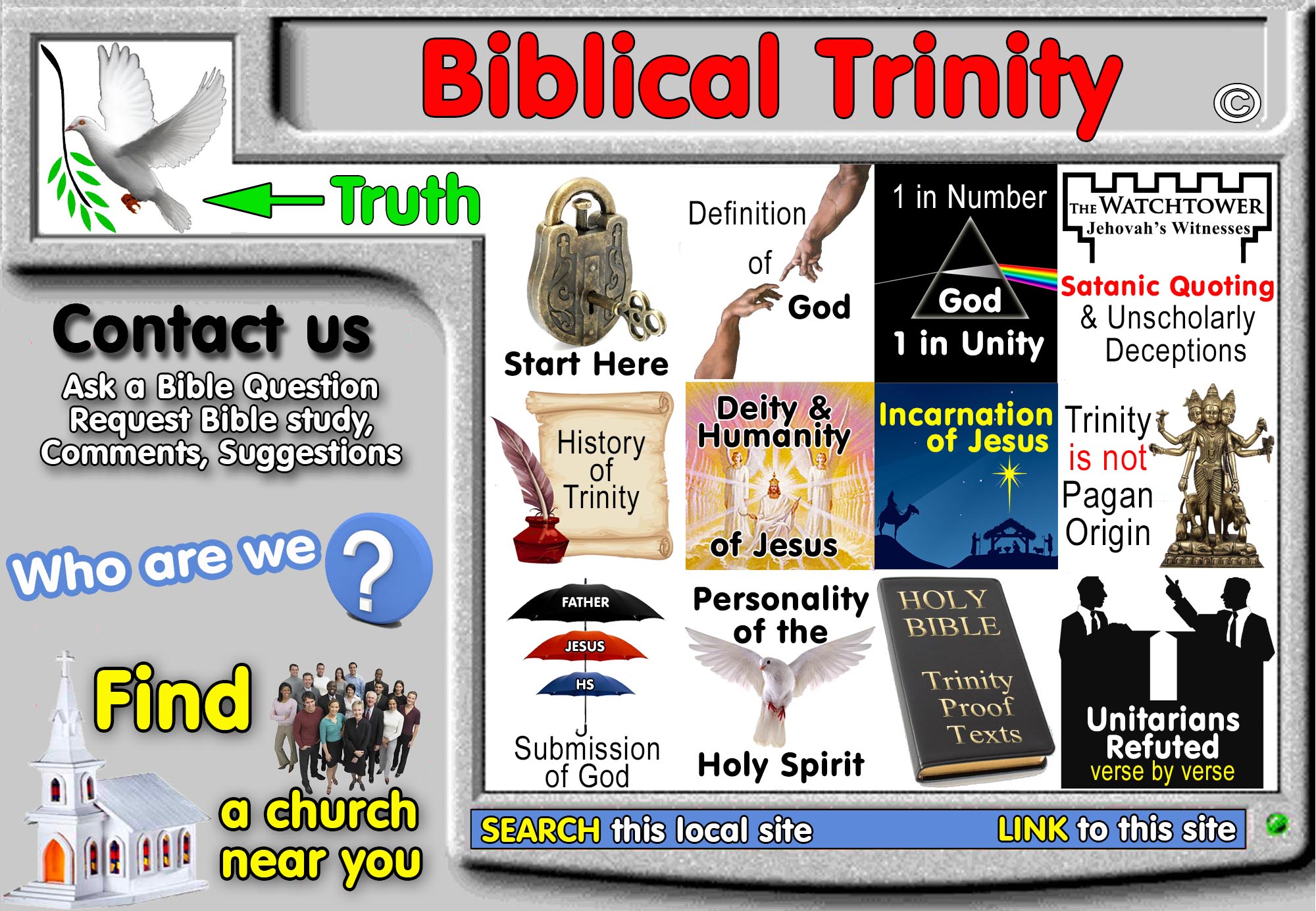Subordination Within The Godhead
Biblical Subordination expressed by early Fathers and apologists:
Most ancient Christians wrote about the fact that Christ was equal as a being, but subordinate in rank. Notice that they did not, as we should not, ever say Christ is a creature. As you can see, it was not until the Nicene period (325 AD) that men started saying Christ was equal in both being and rank to the Father. This represented a departure from both scripture and what almost all Christians from 100-300 AD taught. Jehovah's Witnesses are correct when they emphasize the subordination of Christ to the Father (in rank or power), but outright misrepresent history, when they say the early church viewed Jesus as a creature. It is not surprising that the Nicene Creed overemphasizes the equality of Christ with the Father, since Arius' doctrine of a created Christ was its primary target. The purpose of the Nicene Creed was to emphasize Jesus was equal to the Father as a class of being, and here it was absolutely correct. But the Nicene Creed overemphasized the rank and power equality of Christ with the father, and here it was in error.
- 200 AD Tertullian "We have been taught that He proceeds forth from God, and in that procession He is generated; so that He is the Son of God, and is called God from unity of substance with God. For God, too, is a Spirit. Even when the ray is shot from the sun, it is still part of the parent mass; the sun will still be in the ray, because it is a ray of the sun-there is no division of substance, but merely an extension. Thus Christ is Spirit of Spirit, and God of God, as light of light is kindled. The material matrix remains entire and unimpaired, though you derive from it any number of shoots possessed of its qualities; so, too, that which has come forth out of God is at once God and the Son of God, and the two are one. In this way also, as He is Spirit of Spirit and God of God, He is made a second in manner of existence-in position, not in nature; and He did not withdraw from the original source, but went forth." (Tertullian, The Apology, chapter 21)
- "There is no theologian in the Eastern or the Western Church before the outbreak of the Arian Controversy, who does not in some sense regard the Son as subordinate to the Father." (The Search for the Christian Doctrine of God, R. P. C. Hanson)
- "Arianism: Before Nicaea, Christian theology was almost universally subordinationist. Theology almost universally taught that the Son was subordinate to the Father, but Arius expressed this kind of Christology in a provocative way. ... The slogan of Arius and his allies soon came to be this: "There was when he was not." (Gods and the One God, Robert M. Grant, p160)
- All the great pre-Nicene theologians represented the subordination of the Logos to God." ... "Every significant theologian of the Church in the pre-Nicene period, had actually represented a Subordinationist Christology. (The Formation of Christian Dogma, An Historical Study of its Problems; Martin Werner, p125, 234, Werner is a modernist who also advocates angel-Christology)
- To some extent Origen was a subordinationist, for his attempt to synthesize strict monotheism with a Platonic hierarchical order in the Trinity could have and did have only a subordinationist result. He openly declared that the Son was inferior to the Father and the Holy Spirit to the Son. But he was not an Arian subordinationist for he did not make the Son a creature and an adopted son of God. (The Triune God, Edmund Fortman, p59-61)
By Steve Rudd
